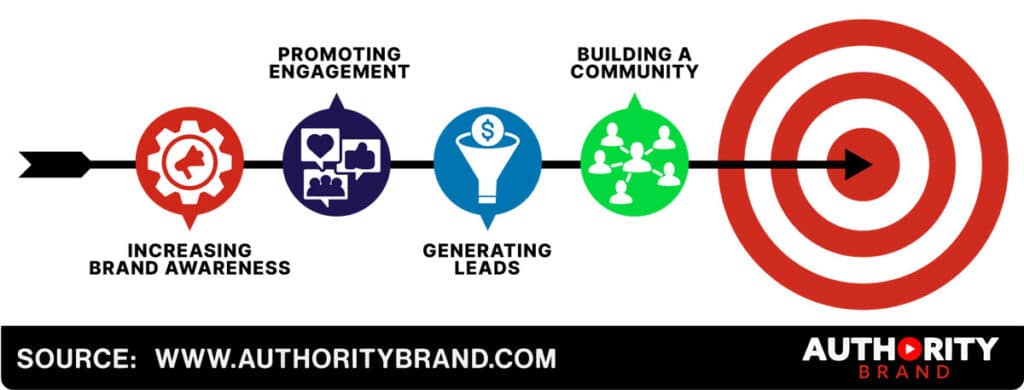Social Media Management
Effective Social Media Management:
Strategies for Business Success

In today’s digitally connected world, social media management is crucial in building a brand’s success. It’s no longer enough to have a mere presence on social media platforms; instead, brands must create relationships with their audience that are both meaningful and engaging.
Social media has transformed from a mere communication tool to a direct channel for businesses to engage with customers. Effective social media management allows enterprises to establish authentic and genuine connections with their audience, forging a human face for their brand and demonstrating authenticity.
Beyond sharing content, social media management involves crafting tailored messages that resonate with the target audience’s interests and preferences. Brands can cultivate a loyal following by actively engaging with their followers, responding to comments, and promoting conversations.
The power of social media in brand development cannot be overstated. It’s the platform where a brand’s personality comes to life, stories are inspired, and a company’s narrative is told in real-time. By consistently and strategically managing their social media, businesses can enhance customer loyalty, boost brand visibility, foster trust, and drive engagement, leading to greater conversions.
At Authority Brand, we specialize in social media marketing using our ANSWER framework and direct response principles to attract and convert your ideal clients into loyal customers. Our customized social media services engage and convert followers into customers with proven campaigns on Facebook and Instagram. Join us and elevate your brand’s social media presence to new heights.
1. The Basics of Social Media Management
Understanding Social Media Management
Social media management refers to the methods, instruments, and techniques used to manage and maximize a brand’s online presence across various social media platforms. It involves creating a well-planned strategy for producing, distributing, and curating content across these platforms.
Engaging with the audience by actively interacting with followers and responding to messages, mentions, and comments is essential for building a community. Analyzing data to track performance metrics, understand audience behavior, and modify strategy accordingly is also crucial to social media management.

Effective social media management can directly impact a brand’s online presence in several ways. Consistent posting and interaction can keep the brand visible and top-of-mind for followers. Customizing content to audience preferences and current trends can help a brand maintain relevance and relatability. Genuine interactions, prompt responses, and active engagement can help followers develop trust and credibility towards the brand. Strategic use of platforms and content can also increase brand visibility by ensuring that the right audience sees it. Lastly, analyzing metrics can help optimize the brand’s strategy, content, and overall performance.
2. Developing a Social Media Strategy
Crafting a Comprehensive Social Media Strategy

Regarding social media, it’s essential to set specific and measurable goals. Some possible objectives include increasing brand awareness, promoting engagement, generating leads or sales, and building a community. To accomplish your objectives, it is essential to understand your target audience. Factors such as preferred platforms, online behavior, interests, and demographics should inform your strategy. For instance, LinkedIn might be a better option than Instagram if you are a target professional. Brands with a vital visual component may succeed on platforms like Pinterest or Instagram. By selecting the suitable media and tailoring your approach, you can maximize your social media efforts and achieve your goals.
Content Planning and Scheduling

A content calendar is a tool to plan social media content by organizing themes, formats, and posting schedules. It ensures consistency and alignment with your marketing objectives and essential events.
You can automate post-scheduling with Later, Hootsuite, and Buffer applications, which allow you to schedule posting times, plan content ahead of time, and review performance metrics.
While scheduling content in advance can save time, balancing it with real-time interactions and current events is crucial to maintaining authenticity and relevance.
To develop a comprehensive strategy, you must coordinate your objectives, analyze your target audience, and systematically plan, produce, and distribute content across relevant channels.
3. Engaging with Your Audience
Best Practices for Audience Engagement
Producing Engaging Content requires several vital elements. First, it is essential to know your audience and tailor your content to your interests and passions. Second, eye-catching visuals such as pictures, videos, and infographics can help catch your audience’s attention. Third, storytelling is a powerful tool to create emotional connections with your audience. Fourth, try to keep your content interesting by using a variety of formats, such as question-and-answer sessions, user-generated content, behind-the-scenes videos, polls, and more. Finally, consistency is critical. Consistently posting content on a regular schedule helps keep your readers engaged.

Various techniques can be employed when responding to messages and comments. First, responding promptly and sincerely to users’ messages and comments is essential. Personalizing your responses and addressing users by name can also help establish a connection. Additionally, addressing complaints and issues as soon as possible with empathy and problem-solving skills can help build trust. Finally, encourage further interaction by asking questions or requesting comments.
Leveraging Analytics for Improved Engagement

It is essential to use analytics to increase participation. You can do this by comprehending audience behavior by examining data such as demographics, engagement rates, and click-through rates to determine the most compelling content. Additionally, it would help if you ascertained the optimal posting periods by examining the periods during which your audience is most engaged. A/B testing is also helpful in trying various formats, posting schedules, and content to see what works best. Refine your content strategy by utilizing data insights and concentrating on the aspects that most interest your audience. By routinely reviewing your analytics, you can optimize your approach and ensure your content resonates with your audience and generates meaningful engagement.
4. Managing Challenges in Social Media Management
Navigating Common Social Media Challenges
Businesses must stay vigilant and proactive in managing their social media presence to minimize potential risks and maintain their reputation. They can achieve this by handling negative reviews and staying alert to platform changes.
When handling negative reviews, businesses should respond promptly and professionally to unfavorable feedback or comments. They should exhibit empathy and a willingness to solve issues in a private or public setting. Companies should also be transparent and open about errors or problems and suggest handling complex issues privately through email or direct messages. It’s essential to develop a crisis management plan that outlines what to do and who to contact in case of a more severe problem.

To stay alert to platform changes, businesses should keep up with official updates, blog posts, and newsletters about algorithm changes. They can join groups, forums, or communities where experts exchange insights and discuss updates. Investing in continuing education and training is crucial to staying consistent with changing trends and algorithms. Experimenting with new features or content types is another way to stay visible and adapt to algorithm changes.
To ensure a solid social media presence and minimize risks, businesses should adhere to the following best practices.
Conclusion: The Imperative Role of Effective Social Media Management for Modern Businesses
Any online business must have a robust social media presence in today’s digital age. If you want to thrive in the ever-changing digital landscape, you must adapt and excel in effective social media management strategies. But it’s not just about having a presence on various social media platforms; it’s about building authentic connections and fostering genuine relationships with your target audience. You can implement these strategies to gain edge over competitors in the digital marketplace. So, don’t just settle for mediocrity; aim to be an exceptional online business that stands out in the sea of competitors by mastering the art of social media management.
Transform Your Ad Campaigns
Discover the fastest and easiest way to effortlessly triple your ad profits using Trust Scaling.
